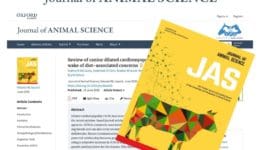NYC Family Dog Dies Weeks After Becoming America’s First Confirmed Canine Covid Case
A family’s beloved 7-year-old German shepherd dog “Buddy” was euthanized earlier this month, 41 days after becoming the first confirmed canine case of COVID-19 in the United States. Buddy’s owners, Allison and Robert Mahoney of Staten Island, New York, have provided a gut-wrenching account of what they and Buddy endured during his final weeks.








